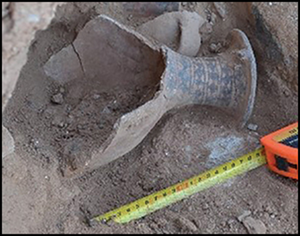Published online by Cambridge University Press: 03 August 2021

Dietary studies can offer insight into the effects of imperial rule on colonised populations. Inka expansion was associated with change in agricultural production and diet, including greater emphasis on maize. This article presents stable isotope analyses of ten individuals from two locations in Antofagasta de la Sierra, Argentina. AMS dating assigns one site to the start of the Inka period and one to the end. Despite diachronic changes in material culture, isotope analyses indicate that maize remained relatively unimportant in local diet. Given the symbolic value of maize in the Inka world, this lack of dietary change suggests limited imperial influence over local agricultural production and diet.